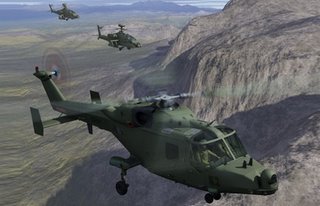
To mark the fifth anniversary of the opening of the military campaign to rid Afghanistan of al-Qaeda and the Taliban, Tony Blair has given a tribute to our 5,000 troops in Afghanistan and promised to give "whatever front-line commanders tell us they need to complete their job".
There can be no doubt about the nature of this commitment, it being set out in an authored piece by Blair in The Sun, repeated in a Reuters report and also conveyed in The Times, the Guardian and even the BBC website. The promise is specific and unequivocal.
The problem here though is in knowing what the front-line commanders actually want – the MoD will certainly attempt to prevent them from making those views public and it can always "spin" any requests to make sure only the right story hits the media.
But there are other issues here – defence procurement is far too important an issue to be left to the military, and especially to front-line commanders. The "toys" tend to be rather expensive and, when it comes to buying them, the military and their defence ministries have a grand and consistent tradition of getting it wrong.
Since it is the (civilian) population which pays for them, it is only right and proper that they should have a say in what is bought (and how many are bought), to which effect it is essential that there should be an open and informed debate.
 It is this that really sorts the men from the boys – and the girlies (of both sexes). Avoiding the issue or simply calling for more equipment is a cop-out. To make a sensible contribution to the debate, you have to get stuck in and be prepared to discuss what sort of equipment our armed forces need.
It is this that really sorts the men from the boys – and the girlies (of both sexes). Avoiding the issue or simply calling for more equipment is a cop-out. To make a sensible contribution to the debate, you have to get stuck in and be prepared to discuss what sort of equipment our armed forces need.In this, it takes no great expertise (or intellect) to ask the right questions. For instance, there is the issue of whether our forces have enough tactical helicopters. You do not have to be a rocket scientist to wonder whether it is wholly appropriate to go down the "bells and whistles route" and end up buying something like the "Future Lynx" (pictured above) which is so expensive that you can only afford small numbers and then only from 2011, when the need is now.
 Equally when, according to one national newspaper "Army chiefs" are calling for more armour in Afghanistan, it can hardly be considered too complicated to ask whether tracked vehicles are the answer (or the whole answer), given their huge operating costs and the wear and tear involved, or whether we need a wheeled APC along the lines of the Canadian LAV (pictured right) or both.
Equally when, according to one national newspaper "Army chiefs" are calling for more armour in Afghanistan, it can hardly be considered too complicated to ask whether tracked vehicles are the answer (or the whole answer), given their huge operating costs and the wear and tear involved, or whether we need a wheeled APC along the lines of the Canadian LAV (pictured right) or both.This is a massive challenge for the Conservative opposition - which, so far is failing the test - for the media and the blogosphere, both of which are largely avoiding the issue. But here, one can agree with Liam Fox in his conference speech where he declared that, "The price of success in Afghanistan maybe high, but the cost of failure would be catastrophic".
If we cannot afford that failure and can find the time to have earnest debates about whether British Muslim women wear veils or such pressing subjects as civil partnerships, then we must surely make the time to debate how we achieve success.
COMMENT THREAD
